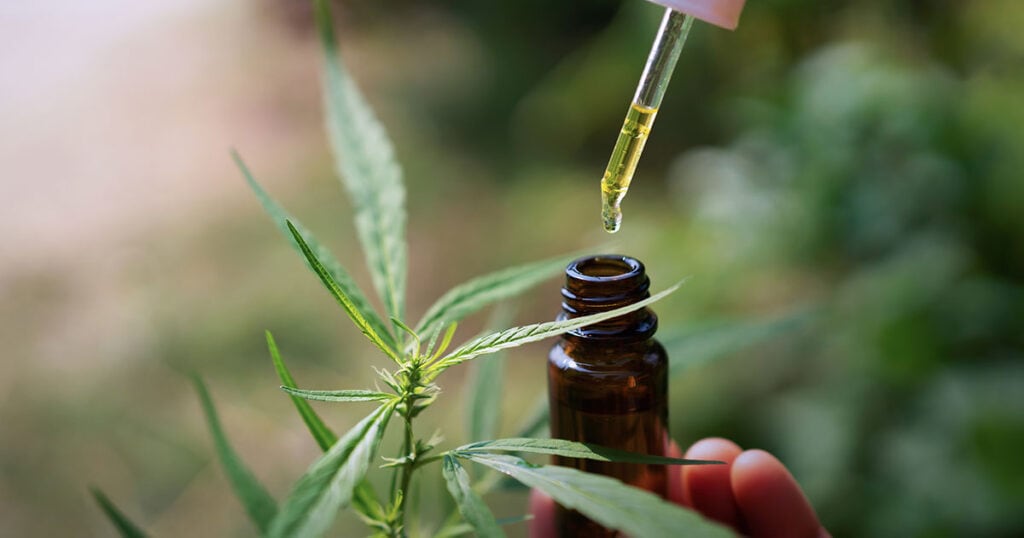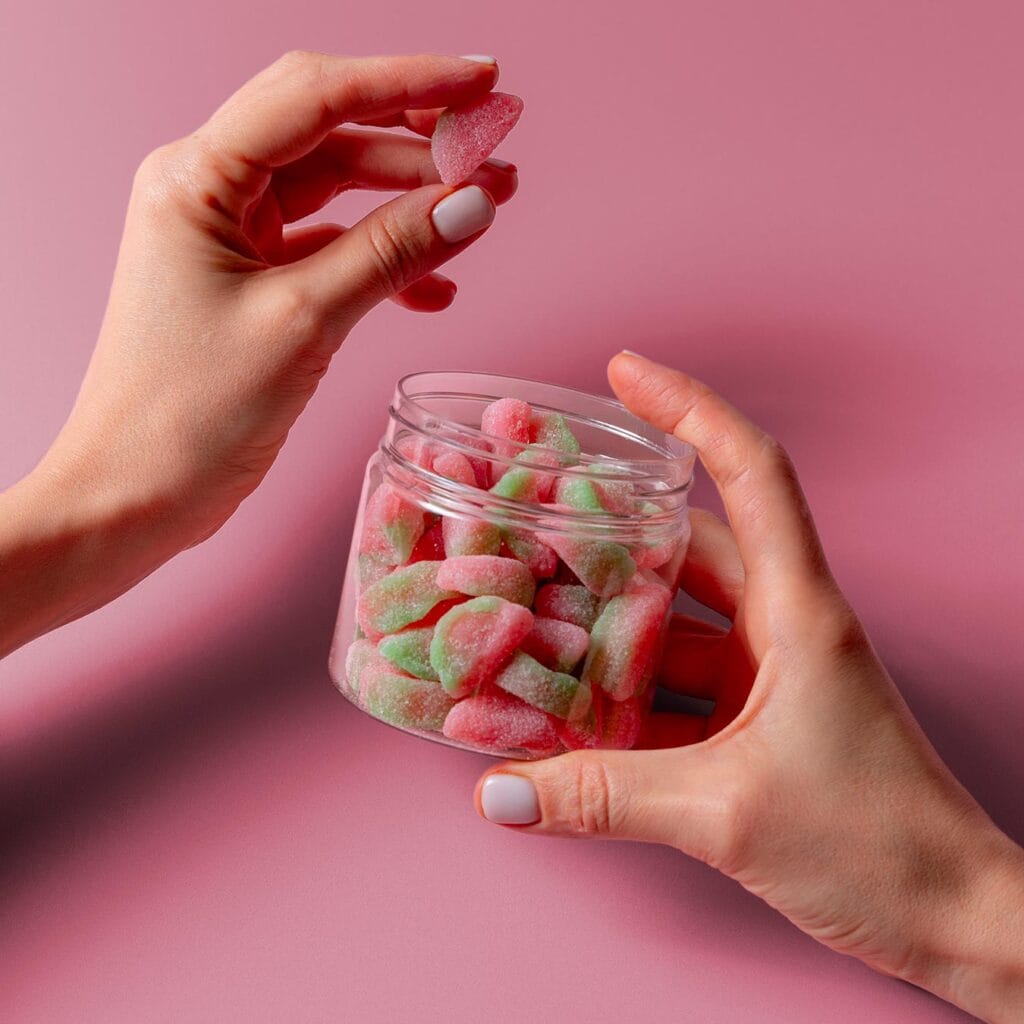The Potential Side Effects of Cannabidiol
Summarize

Most people tolerate CBD well, based on clinical studies and user reviews. However, every compound has the potential to produce side effects after consumption, and that is true for CBD. Some people may experience CBD oil side effects, but in most cases, the symptoms are mild. There are events in which people experience more severe side effects, but the reasons for the effects have been identified. Though tens of millions of people safely take CBD, there are some situations where CBD should be avoided.

TL;DR (Too Long; Didn’t Read):
There are cases where people have experienced CBD oil side effects. The side effects are usually relatively mild, including dry mouth, reduced appetite, and gastrointestinal issues. Some people should not consume CBD because CBD interacts with medications, leading to elevated liver enzymes or other effects. Based on rapid CBD market growth, the benefits of CBD oil outweigh the potential of experiencing mild side effects. CBD is considered safe.
Table of Contents
Common CBD Side Effects
If any cannabidiol side effects are experienced, they are usually mild. Some of the common side effects include the following.
- Dry mouth
- Loss of appetite
- Gastrointestinal symptoms, like diarrhea or vomiting
- Fatigue
- Drowsiness
- Irritability or mood change
The possibility of more severe side effects does exist.
How to Avoid CBD Side Effects?
It should first be said that it is crucial to only buy CBD products in any form from producers who are transparent about the source of hemp and the purity of their products. Some products sold in places like convenience stores are mislabeled regarding the amount of CBD and other ingredients. For example, they may contain THC above the legal amount of 0.3%, or THC is in CBD products that are labeled as THC-free. The THC or other contaminants like heavy metals or pesticides may be causing side effects, and you erroneously attribute them to the CBD.
Always review the Certificate of Analysis (COA) prepared by an independent third-party lab before purchasing CBD oil. It will inform you about the amount of CBD, THC, additional cannabinoids like CBG and CBN, heavy metals, pesticides, and other potentially harmful compounds.
Also, do not use CBD with alcohol if you want to avoid drowsiness. Alcohol slows brain activity, so combining it with CBD may cause excessive drowsiness or fatigue.
To avoid CBD side effects, do not take more CBD than recommended or without allowing your body to adjust to a daily dosage before increasing it. A patient who ended up in the hospital with severe symptoms that included low blood pressure and a depressed level of awareness had consumed two whole packages of CBD gummies, which contained 370 mg of CBD in total. He hoped to relieve back discomfort and ate all the gummies simultaneously. The package suggested a serving size of 30 mg of CBD.
An often-referenced clinical study found that participants taking up to 1500 mg/day of CBD for 26 days experienced no side effects. The critical point, once again, is to slowly increase the CBD dosage and potency from the recommended serving amount should you want to take more CBD than the beginning dosage recommended by the CBD brand.
You are unlikely to experience side effects of CBD gummies if you follow the brand’s recommended serving amount and are not taking medications.

Research on CBD Safety
In 2018, the World Health Organization issued a report reviewing CBD. It found that CBD has a good safety profile and is not addictive. Since then, numerous research projects have demonstrated the efficacy and safety of CBD. For example, a review by the Australian Therapeutic Goods Administration found that CBD has a good safety and tolerability profile when taking less than 60 mg per day.
Currently, hundreds of clinical trials are announced or in progress to investigate CBD’s safety profile and effects on health issues. The issues include discomfort, sleep disorders, food cravings, and so many more.
Medical researchers have reviewed past CBD clinical trials and found there is not much information on the long-term side effects of CBD.
The bottom line is that research to date has shown CBD is safe to consume, but there is a need for more research to determine the CBD side effects in humans. Many of the earlier clinical trials used animals. So, more human trials are needed.
Frequently Asked Questions
CBD does not make you feel high because it is a non-psychoactive compound. It is the cannabinoid THC that causes a high. Both CBD and THC work on the endocannabinoid system, but they work in different ways.
CBD can interact with medications for many conditions. Moreover, some products come with a warning that they contain grapefruit. The reason is that grapefruit has a compound called furanocoumarins. It combines with various enzymes in the digestive system and neutralizes the enzymes. When your medications do not break down properly, they reach the bloodstream and can lead to a dangerous buildup.
If you take CBD for the first time, it is essential to start with a low potency and only take the recommended serving amount. You want to give yourself enough time to determine if there will be side effects and how well the dosage works. You can increase the potency over weeks.
Since researchers have found that people can take as much as 1,500 mg of CBD per day, it would take an enormous amount of CBD to overdose. There are a couple of documented cases of CBD overdose. One was a man who ate two bags of CBD gummies in one sitting.
Their physicians are uncertain as to what caused the severe reactions. Many CBD products have other ingredients, so some side effects may be a reaction to something different than CBD, like a botanical. Low-quality CBD products may contain dangerous ingredients like pesticides and heavy metals.
Be An Informed Consumer of CBD
Based on research, CBD is safe. The potential CBD side effects in humans are usually mild, if there are any. However, you should be an informed CBD user. For example, learn the medications that may interact with CBD and cause liver injury or other serious effects. You should talk to your doctor before taking CBD and follow the recommended dosage amount. Also, always buy a high-quality CBD oil product from a brand that publishes the batch’s Certificate of Analysis (COA) and has a reputation for honest labeling. Even if the CBD market were FDA-regulated, you would still want to take these steps.
Sources
- National Library of Medicine. (n.d.). Cannabidiol: The Need for Tighter Regulation and Improved Understanding.
- National Library of Medicine. (2022). Adverse Effects of Oral Cannabidiol: An Updated Systematic Review of Randomized Controlled Trials (2020–2022).
- U.S. Food and Drug Administration. (n.d.). What You Need to Know (And What We’re Working to Find Out) About Products Containing Cannabis or Cannabis-derived Compounds, Including CBD.
- Poison Control National Capital Poison Center. (n.d.). CBD Products: Do They Work?
- National Library of Medicine. (2020). A Case of Toxicity from Cannabidiol Gummy Ingestion.
- National Library of Medicine. (2017). An Update on Safety and Side Effects of Cannabidiol: A Review of Clinical Data and Relevant Animal Studies.
- World Health Organization. (2018). Cannabidiol (CBD) Pre-Review Report.
- Therapeutic Goods Administration, Australia. (n.d.). Review of the Safety of Low-dose Cannabidiol.
- Harvard Health Publishing, Harvard Medical School. (2021). CBD and Other Medications: Proceed with Caution.
- Pennsylvania State University. (2020). NTI Meds to be Closely Monitored when Co-Administered with Cannabinoids.
- National Library of Medicine. (2021). Cannabidiol Interactions with Medications, Illicit Substances, and Alcohol: a Comprehensive Review.
- ClinicalTrials.gov. (n.d.). Search Results for Cannabidiol Studies in the United States.
- National Library of Medicine. (2022). The Safety and Efficacy of Low Oral Doses of Cannabidiol: An Evaluation of the Evidence.
Share this post


0